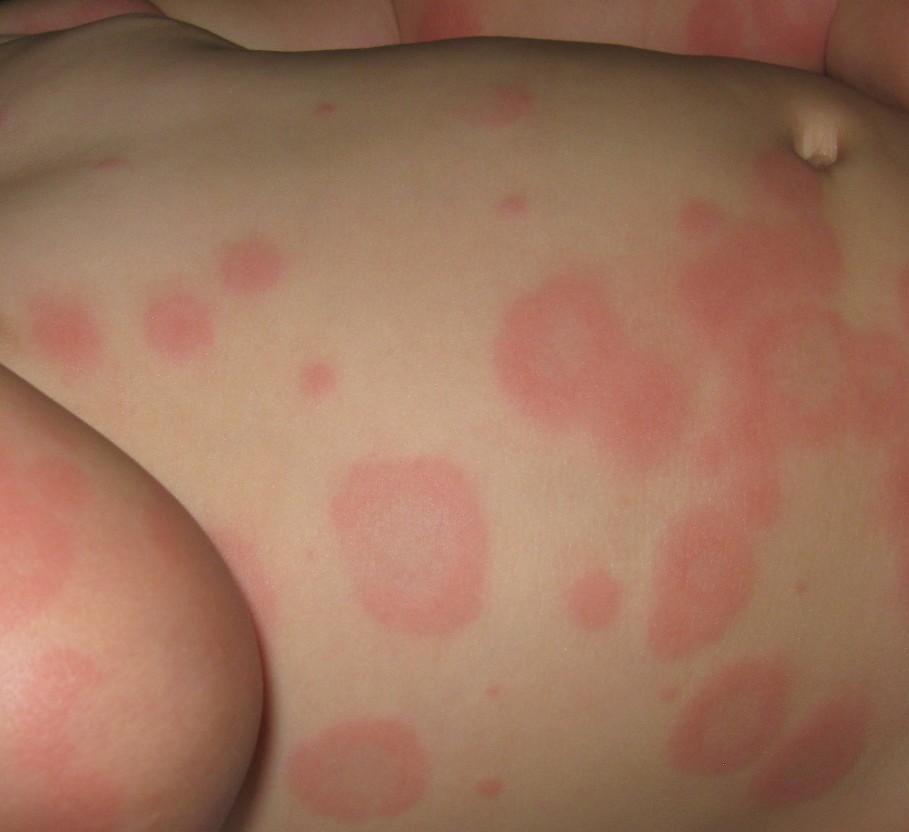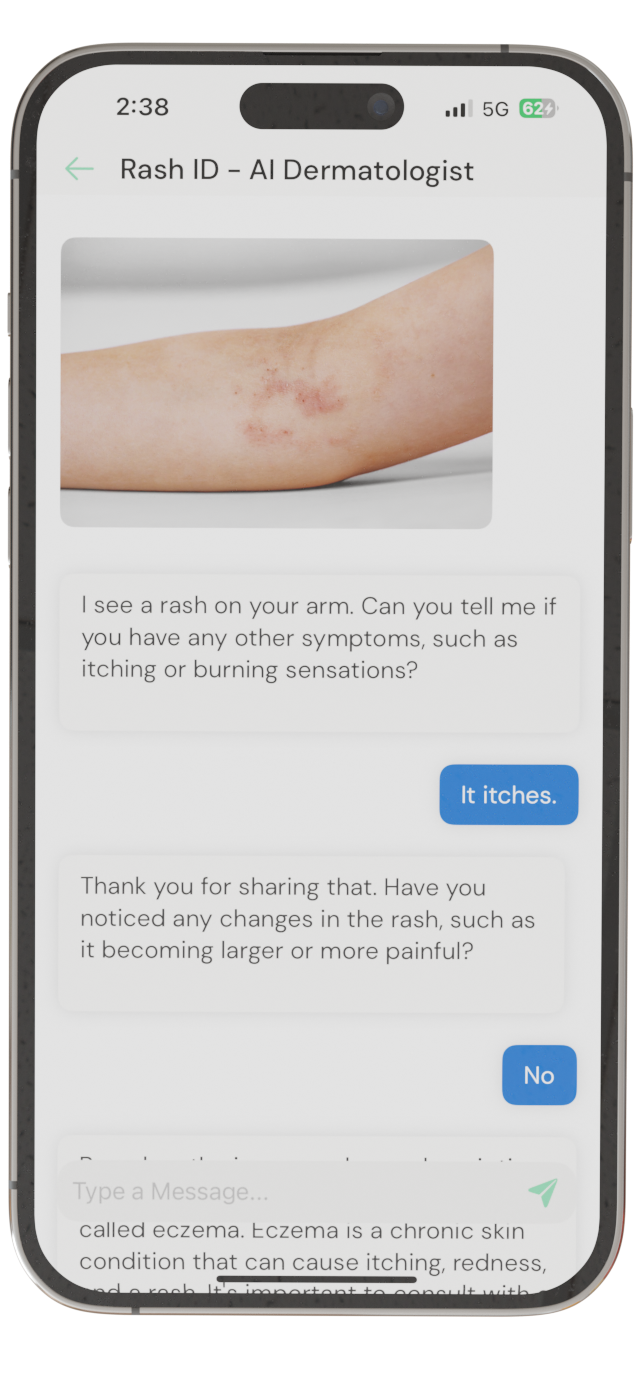
Erythema Multiforme: A Comprehensive Overview
Erythema multiforme (EM) is an acute, immune-mediated condition characterized by the appearance of distinctive target-like, round skin lesions. This condition can affect both the skin and mucous membranes, and is often triggered by infections or medications. Erythema multiforme is classified into two types based on severity: erythema multiforme minor and erythema multiforme major.
Types of Erythema Multiforme
- Erythema Multiforme Minor (EM minor):
- Symptoms: Presence of characteristic target lesions primarily on the extremities and trunk. These lesions are often symmetrical.
- Causes: Most commonly associated with infections, particularly with the herpes simplex virus (HSV).
- Erythema Multiforme Major (EM major):
- Symptoms: Characterized by mucosal involvement (such as oral, ocular, and genital mucosae) in addition to skin lesions. This type can be more severe and may require hospitalization.
- Causes: Can be triggered by infections, medications (such as antibiotics or NSAIDs), or other underlying conditions.
How to Recognize Erythema Multiforme: Common Symptoms
Understanding the symptoms of erythema multiforme can aid in its early detection and management:
- Target Lesions: Erythema multiforme is known for its characteristic lesions that resemble a target or bullseye, with concentric rings of color variation.
- Mucosal Involvement: In cases of EM major, signs may include painful sores or ulcers in the mouth, eyes, and genital area.
- Symmetrical Distribution: Lesions are symmetrically distributed, often on the arms, legs, chest, and back.
- Itchiness and Burning: Affected areas may experience itching or a burning sensation.
Who Gets Erythema Multiforme?
Erythema multiforme can affect individuals of any age, but it is more common in young adults. Risk factors include:
- A history of herpes simplex virus (HSV) infection.
- Use of certain medications, such as sulfonamides, penicillins, or antiepileptics.
- Immunological conditions that predispose one to hypersensitivity reactions.
Symptoms and Causes
What are the Signs of Erythema Multiforme?
Signs and symptoms of erythema multiforme include:
- Presence of target lesions with well-defined edges.
- Lesions that appear and progress over several days.
- Possible systemic symptoms such as fever, malaise, or joint pain.
What Causes Erythema Multiforme?
The exact cause is unclear, but potential triggers include:
- Infections: Particularly herpes simplex virus (HSV) and Mycoplasma pneumoniae.
- Medications: Antibiotics, antiepileptics, and NSAIDs.
- Other Factors: Occasionally associated with other infections, stress, or systemic conditions.
Diagnosis and Tests
How is Erythema Multiforme Diagnosed?
Diagnosis is primarily clinical, based on the appearance of the lesions and patient history. Tests may include:
- History and Physical Examination: Assessing the lesion's characteristics and checking for mucosal involvement.
- Laboratory Tests: In certain cases, blood tests or HSV antibody titers may help establish an infectious cause.
- Skin Biopsy: Rarely needed, but can be performed to confirm diagnosis by analyzing skin tissue.
Management and Treatment
How is Erythema Multiforme Treated?
Effective management involves identifying and treating the root cause if possible, as well as symptomatic relief:
- Antiviral Medications: For HSV-induced cases, antiviral therapies like acyclovir can be beneficial.
- Medication Withdrawal: Discontinuing the offending drug if erythema multiforme is drug-induced.
- Symptomatic Treatment:
- Topical Steroids: Can provide relief from itching and inflammation.
- Oral Antihistamines: To alleviate itching.
Medications for Erythema Multiforme
Visit the following links for more information on medications used in erythema multiforme:
Home Care and Lifestyle
Home Remedies and Care Techniques
Home care approaches can support treatment efforts:
- Maintain Skin Hygiene: Regular cleansing with mild soap and water.
- Moisturization: Keep affected areas well-moisturized to prevent dryness.
- Oral Care: If oral lesions are present, use mild mouthwashes or saline rinses.
Prevention
How can Erythema Multiforme be Prevented?
Preventative strategies center around managing known triggers:
- Antiviral Prophylaxis: In recurrent HSV-related cases, prophylactic antiviral therapy can prevent outbreaks.
- Medication Management: Avoiding known drugs that previously caused reactions.
Prognosis and Living with Erythema Multiforme
What is the Outlook for Patients?
Erythema multiforme is often self-limiting, especially EM minor. EM major may require more intensive treatment and care but generally resolves without long-term consequences if managed appropriately.
When Should I Call the Doctor?
Seek medical attention if:
- Lesions become widespread.
- Mucosal involvement is causing discomfort or dysfunction.
- Systemic symptoms like fever or malaise persist.
Frequently Asked Questions
Is Erythema Multiforme Contagious?
No, erythema multiforme itself is not contagious, although the underlying infection (like HSV) may be.
Can Erythema Multiforme Recur?
Yes, especially if the underlying trigger (such as HSV) is not effectively managed.
How Does Erythema Multiforme Differ from Stevens-Johnson Syndrome?
Stevens-Johnson Syndrome (SJS) is a more severe condition with extensive skin detachment and higher risk of complications compared to erythema multiforme.
For more accurate and detailed information, always consult a healthcare provider or visit reputable medical sources.

Identify Skin Conditions Instantly
Try Rash ID for Free